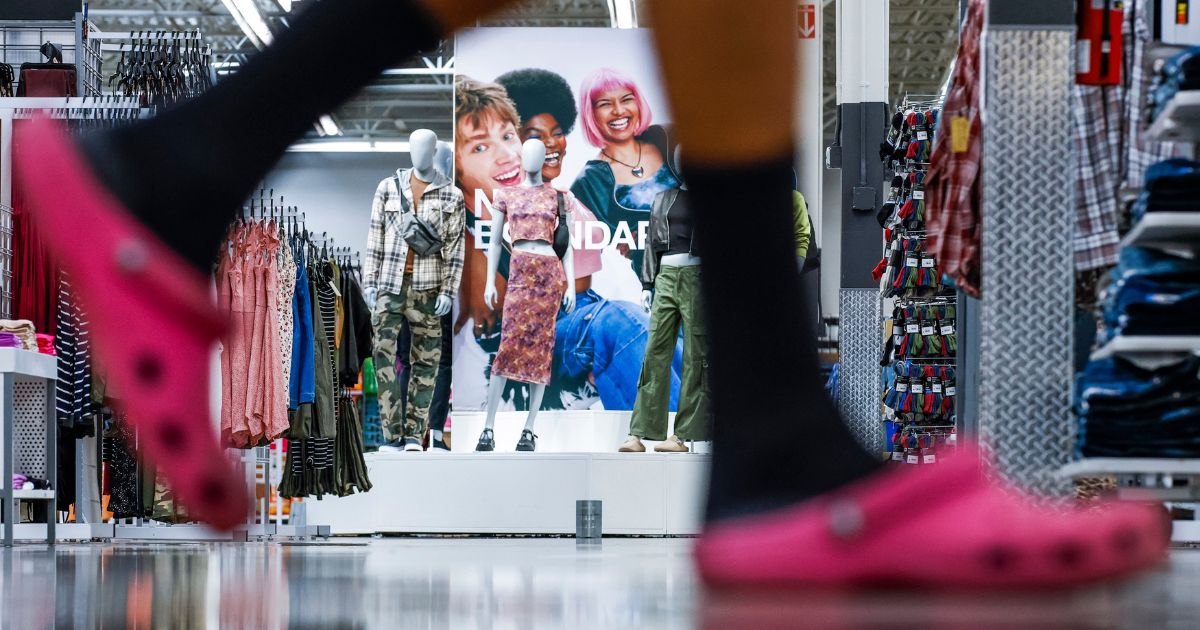A customer walks by No Boundaries merchandise at a Walmart Superstore in Secaucus, New Jersey, July 11, 2024. (AP File)

- Consumer confidence index rose to 103.3 in August, improving from July's 101.9, signaling better economic outlook.
- Short-term economic expectations increased to 82.5, ending a five-month period of readings below 80, which can signal recession.
- Mixed feelings persist despite improvements; inflation and higher borrowing costs continue to affect consumer optimism and savings.
Share
|
Getting your Trinity Audio player ready...
|
American consumers felt more confident in August as their outlook for the future improved.
Confidence Index Rose
The Conference Board, a business research group, said Tuesday that its consumer confidence index rose to 103.3 in August from 101.9 in July.
The index measures both Americans’ assessment of current economic conditions and their outlook for the next six months.
The measure of Americans’ short-term expectations for income, business and the job market rose to 82.5. July’s figure was revised up to 81.1 from its initial reading of 78.2, ending a five-month stretch below 80. A reading under 80 can signal a potential recession in the near future.
Consumers’ view of current conditions rose to 134.4 in August from 133.1 last month.
Related Story: Harris Aligns with Biden on Raising Taxes for the Wealthy. Will It Help or Hurt ...
Consumer spending accounts for nearly 70% of U.S. economic activity and is closely watched by economists for signs how the American consumer is feeling.
Though the report’s topline numbers all improved slightly from July, consumers continued to have mixed feelings about the economy.
“Consumers’ assessments of the current labor situation, while still positive, continued to weaken, and assessments of the labor market going forward were more pessimistic,” said Dana Peterson, the Conference Board’s chief economist.
Peterson said that dreary view was likely spurred by the July jobs report, which showed slowing job growth and a rise in the unemployment rate to 4.3%.
On top of the weak July jobs data, the government reported last week that the U.S. economy added 818,000 fewer jobs from April 2023 through March this year than were originally reported. The revised total added to evidence that the job market has been steadily slowing.
Cost of Essentials Continues to Cost More
Though inflation has largely receded from 2022 highs, the cost of essentials continues to chip away at American consumers’ savings and optimism.
Write-in responses to the Conference Board’s survey were still focused on prices and inflation, even as 12-month inflation expectations fell to their lowest level since March of 2020, when the coronavirus pandemic upended the U.S. economy.
Related Story: Government: US Economy Added 818,000 Fewer Jobs Than First Reported in Year ...
The Federal Reserve began raising its benchmark lending rate in March of 2022 in an attempt to fight the inflation that took hold in the wake of the pandemic. Higher borrowing costs, combined with rising prices, had consumers in a foul mood for the better part of the past two years.
Some help could be on the way though. Fed officials have strongly suggested that an interest rate cut is coming at its September meeting, giving some relief to consumers and businesses.



















